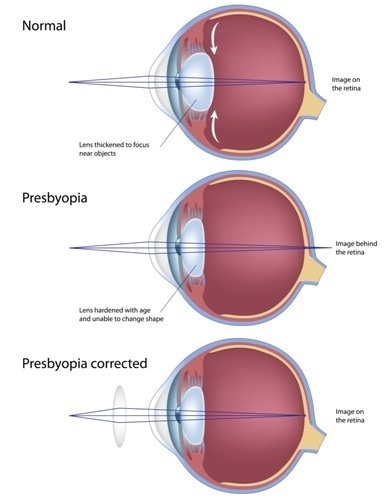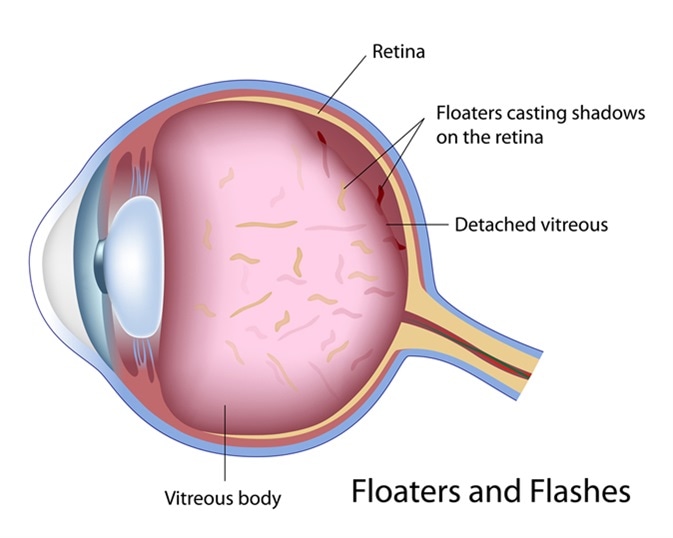Just like other physiological functions of the body, eyesight also starts declining as a person ages. It is a natural phenomenon, and a common problem with aging, which gets amplified due to unhealthy lifestyle of today’s times.
Additionally, there are several health conditions which accelerate this process of deterioration of vision. Identifying and addressing these conditions early on can make a huge difference.
Maintaining decent eyesight during old age needs a good amount of consistent effort, all of which would be worth, when we see it in terms of quality of life.
Ocular Problems with Aging
There are some common eye problems which tend to surface as a person gets older. These include dry eyes, glaucoma, cataracts, and loss of vision. Most of the individuals face at least one of these ocular conditions during their old age. The severity of these ocular ailments typically keep growing during subsequent decades of life.
Reading difficulty is one of the most common problem that occurs as a person crosses 40 years of age. That happens with everyone, and eventually bifocal lenses or reading glasses will be needed to address presbyopia. During 50s, eye muscles get progressively weak and restructure around the lens, causing slow deterioration of the vision.

Cataracts is another inevitable problem with old age, as a person nears the 60 mark. It causes eye lenses to become opaque, and results in blurred vision. Advances in the ocular surgeries have made it easier and less painful to resolve cataracts.
Increasing glaucoma is another common issue during 60s and 70s. Loss of peripheral sight is the most common symptom of glaucoma. It also results in headache, blurred vision, and sore eyes.
Age-related macular degeneration (AMD) is the condition causing diminished central vision. It can be of either dry or wet type.
How Macular Degeneration Affects Your Vision - 3D animation
In individuals with concurrent diabetes, the complication of diabetic retinopathy may slowly develop. It is a particularly serious condition because it often goes unnoticed due to lack of early signs.
Floaters (also known as floating “cobwebs”) is a less serious problem, and is a sign of an aging vision. However, in some cases, it may indicate more critical problems such as retinal detachment, which is a medical emergency needing immediate attention.

Recommendations for Maintaining Good Vision
Taking care of eyes during old age is more of a matter of awareness. The interventions and tools to be able to maintain a good vision are often handy, but are not exercised optimally due to inability to identify the problems early.
The first and foremost solution is to have regular eye check-ups. Any corrections in the visual acuity, and resultant modification required in the glasses is often ignored due to irregularity of eye check-ups. Having an eye check-up at least once in two years up to the age of 50, and at least once in a year beyond the age of 50 is highly recommended by the optometrists globally.
The earlier your optometrist is able to spot any symptoms, the better it is to cure it or prevent it proactively. Along with regular eye check-ups, complete physical examinations over the age of 50 is a must. This helps in identifying conditions such as diabetes or hypertension which may potentially cause ocular problems. A family history of significant eye diseases, if any, should also be disclosed to the physician as well as to the optometrist.
Being vigilant about the eyes and any problems including reading difficulties, hazy vision, redness or soreness in or around the eyes, pain, or swelling, is a prerequisite to maintaining a good eyesight.
Lifestyle habits have direct impact on the vision. Eating a balanced diet can help combat several eye ailments. Green leafy vegetables are well known to be beneficial for the vision. Several studies have inferred that a diet rich in omega-3 fatty acids and antioxidants can drastically decrease the risk of AMD and cataracts, respectively. Smoking has been proven to be a major risk factor for AMD, uveitis, and cataracts, among other eye diseases. It causes no good to the health in general, and must be avoided.
While going outdoors, sunglasses should be used in order to protect eyes from harmful ultraviolet rays. Regular exercise, good sleep, and stress-free surroundings are other lifestyle aspects which one should try to follow to preserve their eyesight during old age.
Further Reading
Last Updated: Sep 24, 2018